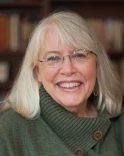
A cybersecurity professor at University of Maryland Global Campus (UMGC) calls his students at home to get to know them better. Another faculty member tells a business leadership class about his experiences working for multinationals, including the mistakes he made. An instructor for the First Term Experience course makes sure her students know that she had her own stop-and-start journey as a nontraditional student.
These UMGC educators are among nine—five in the United States and two each in Asia and Europe—named as this year’s recipients of the Stanley J. Drazek Teaching Excellence Award. Nominations for the awards, which carry a $1,500 honorarium, come from students.
“It is the most prestigious teaching award UMGC can bestow on its faculty,” said Stefan Gunther, UMGC associate vice president for faculty affairs.
UMGC has more than 5,000 faculty members, making the awards highly competitive. The honors, along with UMGC’s annual Teaching Recognition Awards, are highlighted during Global Faculty Appreciation Awareness Week in December.
This year’s Drazek winners share a passion for teaching and a personal commitment to their students’ success.
“I think the faculty members who win the awards epitomize an instructional approach that we call the Three Rs. They respond to students in a timely and individualized manner. They’re excellent in building relationships, which is evident by the fact they are nominated by their students. And their instructional approach is highly relevant to student needs in the workforce. They provide topical examples grounded in their professional practice,” Gunther said.
Steven Fulton has worked at UMGC for almost a dozen years, most of that time overlapping with his career as a senior cyber analyst at the U.S. Department of Defense. He became interested in teaching in the School of Cybersecurity and Information Technology after receiving his doctorate in management from UMGC in 2009.
He makes it a point to get to know his graduate students, turning the online learning experience into a personal one.
“I’m not beyond picking up the phone and calling students. Sometimes it’s the first voice they’ve heard teaching online classes,” Fulton said. “I call if I see they are having problems getting projects done. I also reach out to students I think should go beyond getting another graduate degree and look toward a PhD.”
Fulton said hearing students’ personal stories helps him teach more effectively. “Some people come from a technical background. Some are from the military. Some are working at a very high level in their career field but they need to build their critical thinking,” he explained.
One of Fulton’s colleagues in the School of Cybersecurity and Information Technology is also a Drazek winner. Stephen Orr, an adjunct who works for the National Security Agency, said being on the UMGC faculty allows him “to give back” after having exceptional experiences with teachers when he was younger.
“Academia is about theory and the real world is about practice. What I’ve read from student comments at the end of each class is that I’m seen as being able to blend the two of them,” Orr said. “I’m bringing what they’re reading in the news into our discussions, and I’m showing them how to mitigate against those threats. So, it’s not just reading, it’s real life.”
Orr, who has been with UMGC for more than a decade, said his students stay in touch. He has been happily surprised by emails every semester from “students who want to let me know they passed a certification or passed a class.”
Lynn Nolan, in the Department of Educational Technology in the School of Arts & Sciences, plans to use her Drazek Award honorarium, characteristically, on new technology. Part will go for a malware update on her computer. She is also toying with the idea of investing in the Extended Reality (XR) technology that UMGC will pilot in two courses this fall. XR combines augmented reality (AR) with virtual reality (VR). UMGC is one of 10 universities selected for the pilot with educational technology company VictoryXR.
Nolan’s job is to help graduate students who are teachers—or aspire to be teachers—envision how technology can enhance learning across a wide range of learning environments. She has been at UMGC more than six years.
“I tell people that I teach the most fun course anyone could ever teach. I teach how to take any kind of technology—from laptops to cell phones to virtual reality to robotics—and use it in the classroom, whether face-to-face or online, to engage students,” Nolan said. “There are students who might be teaching autistic children. Some of my students teach special education or gifted children…. Some of my students even teach aeronautics in high school, which means I may have engineering teachers in the same class as kindergarten teachers.”
Nolan said a deep connection to students is crucial in her classes, which is why Nolan hands out her cell phone number with the assurance that students across multiple time zones can text or phone her at any time.
In the School of Business, Drazek award winner Brian Hults brings three decades of career experience to his classes on business leadership. He served in top human resources roles at Frito-Lay, CASE IH, Consolidated Container Co., Rubbermaid, InterContinental Hotels and Resorts, Coca-Cola in Asia and Novartis in Switzerland. His final job before he retired was chief people officer at Web.com.
“In my MBA 610 course, everything we’re studying is something I’ve done. So, I am able to share my successes and the mistakes I’ve made,” Hults said. “I think having these concrete examples helps students retain the material and tie it to something real.”
He said his global work experience and his family background—his father was an active-duty servicemember—also make him more aware of the challenges faced by international students and students in the military.
“I check my email first thing in the morning and again before I go to bed at night so I can connect with students working and living overseas,” he said. “My international students light up when I tell them I lived in Hong Kong for three years.”
When students initially enroll at UMGC, they are required to take the First Term Experience course, also known as PACE, to build their study and time-management habits, put them in touch with university resources, direct them to a degree pathway and set them up for success. Patricia Bush-McManus, the Drazek winner who teaches that course, makes sure her students know that she, too, was an adult learner.
“I stopped and started my studies many times, so I understand the student experience,” said Bush-McManus, who brings more than three decades of higher education experience to her class.
“I see my role as providing students with confidence, tools and resources they need to help change the trajectory of their lives.”
Like Nolan, she makes herself available by phone to students, even into the night, because “if someone calls late, after dinner and putting kids to bed or returning from the field, they are seeking assistance, support or resources.”
Faculty members Choungja Lee and Cynthia McGinnis, who both teach in Asia, said the Drazek Award was a dream come true.
“My biggest dream was always to teach at UMGC. My family encouraged me to pursue that path and they were even more excited than me by the Drazek news,” said Lee, a language teacher who has been with UMGC for 30 years.
Most of Lee’s students are military students “who work hard during the day” then take night courses, much as she did when she obtained her education.
“I spend time getting to know students… Every student in my class knows that I am available if they want,” said Lee, who was born in North Korea and raised in an orphanage in South Korea during the Korean War. The orphanage was near a U.S. Army base, Camp Page.
“Our only neighbors were the U.S. soldiers nearby. They paid a visit and one of them became my personal English tutor. Once I could communicate with the soldiers, they became my family,” she said. “I realized from this experience that learning is key to my life.”
Her connection to UMGC came when she applied for a teaching position at U.S. Amy Garrison Camp Long at the recommendation of a Catholic nun she tutored in the Korean language.
McGinnis also learned about UMGC through a family member, her uncle who served in the Air Force. She has been part of the faculty for three years, teaching math and computer science at the Marine Corps Air Station at Iwakuni, Japan.
“It is the best award when your efforts are appreciated by your students—and I feel I have the best students,” she said. “They are hardworking and appreciative of the time I put into each lecture.”
McGinnis estimates that she spends between 12 and 20 hours preparing her lectures. She said the effort pays off in her students’ grades.
“My goal is to help students realize their dreams. I went to university with a dream to earn a degree. My students have the same dream,” she said. “It is wonderful to help them on their journey.”
In Europe, faculty member LaShawn Thompson said she was “overjoyed” by the news she had won the Drazek Award.
“It feels good to know that my work is appreciated and others see the value in the services I provide,” said Thompson, who teaches psychology. “I am proud to join a specific group of people who provide the highest levels of education, mentoring and career services to a worthy student population.”
Like Hults, she also shares experiences from her own life in the classroom.
“I truly believe that these real life situations allow students to gain a deeper understanding of the material. Practicing in my field before I became a professor allowed me the opportunity to bring the academic content of my profession to real life and those experiences help create passion for the discipline in my students,” she explained.
She said teaching at UMGC has also caused her to grow personally and professionally.
“I am grateful for the opportunity to work with such wonderful students and for a university system that cares about the population it serves as well as its employees,” Thompson said.
The other Drazek Award recipient in Europe, history professor Michael Mulvey, believes well-taught history has everything to do with asking questions rather than memorizing facts and dates. Mulvey, who teaches out of Ramstein Airbase, encourages creative activities in his classes, including role playing. In his Roman Republic course, for example, students portray Roman senators confronted by difficult political and military choices in 63 BCE. Students in his World War I course write film pitches based on their research related to the war.
At the same time Mulvey learned of his Drazek Award, he was also given an award by the United States European Command for supporting conversations about gender equity initiatives.
This year’s Teaching Recognition Awards include Donna Maurer and Steve Corbett, a retired servicemember, in the School of Arts & Sciences; Karla Perri in the School of Cybersecurity and Information Technology; and Deborah M. Wharff in the School of Business. Teaching Recognition Awards also went to Frank Concilus, Hak-Sun Kim and Theresa Schmits in Asia and Michael Blattman, Bert Jarreau and Jessica Stock in Europe. The teaching recognition awards come with $750 honoraria.
The Drazek Awards are named for Stanley J. Drazek, the second chancellor at what is now UMGC and a strong advocate of teaching excellence. Drazek spent 30 years at the forefront of adult higher education, and his work is credited with expanding opportunities for adult learners.

Share This